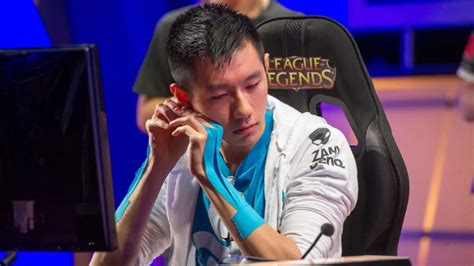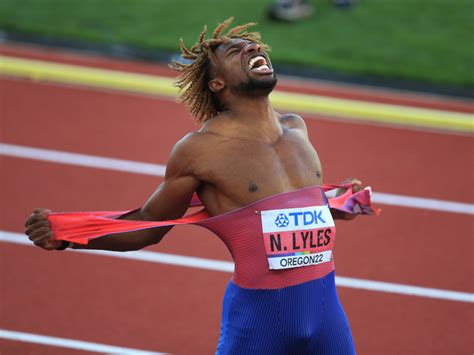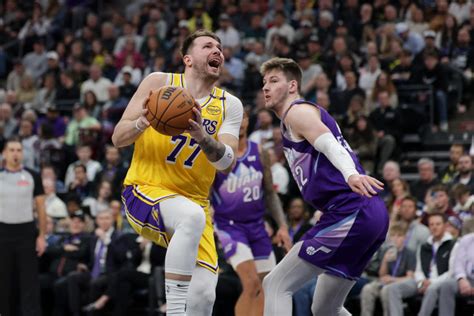
Former Pittsburgh Steelers wide receiver Ryan Switzer acknowledges prioritizing his on-field performance over his physical well-being, a decision he now believes led to the premature end of his NFL career. Switzer, who last played in the NFL in 2020, candidly discussed the long-term consequences of repeatedly ignoring concussion symptoms and pushing through injuries in a recent interview, highlighting the dangers of prioritizing short-term gains over long-term health.
Ryan Switzer’s promising NFL career was derailed by a series of concussions and injuries, ultimately forcing his retirement at a relatively young age. The former Steelers receiver, who also played for the Dallas Cowboys and Oakland Raiders, recently opened up about his experiences, emphasizing the importance of prioritizing player safety and the potential long-term health consequences of ignoring injuries. Switzer’s story serves as a cautionary tale for athletes at all levels, highlighting the critical need for comprehensive concussion protocols and a shift in the culture that often pressures players to “play through the pain.”
Switzer, reflecting on his time in the NFL, admitted he often downplayed or ignored concussion symptoms to remain on the field. “I ignored my body, and I paid the price,” Switzer stated. “I was always trying to get back out there, trying to prove my worth. I didn’t realize the long-term damage I was doing.” This mindset, he believes, contributed significantly to the accumulation of head trauma that ultimately led to his early retirement.
The wide receiver’s career trajectory took a sharp turn after suffering a concussion in 2019 while playing for the Steelers. While he initially recovered and returned to play, he continued to experience lingering symptoms, including headaches, memory issues, and sensitivity to light. These symptoms persisted and worsened over time, impacting his ability to perform at his peak and affecting his quality of life off the field.
“I remember telling the trainers I was fine when I wasn’t,” Switzer confessed. “I wanted to be out there for my teammates, for the coaches, for the fans. But in the end, I wasn’t doing myself any favors.” This pressure to return to play, often self-imposed, is a common theme among athletes in high-contact sports.
Switzer’s story underscores the growing awareness of the dangers of concussions in football and the importance of taking head injuries seriously. The NFL has implemented stricter concussion protocols in recent years, but Switzer’s experience highlights the challenges of changing a culture that often rewards toughness and resilience over long-term health.
The former receiver is now advocating for increased player safety and greater awareness of the long-term effects of concussions. He hopes his story will serve as a warning to young athletes and encourage them to prioritize their health and well-being. “It’s not worth sacrificing your future for a game,” Switzer emphasized. “Your health is your wealth.”
The Path to the NFL and Early Success
Ryan Switzer entered the NFL with considerable promise. A standout receiver and return specialist at the University of North Carolina, he was drafted by the Dallas Cowboys in the fourth round of the 2017 NFL Draft. Known for his exceptional quickness, agility, and reliable hands, Switzer quickly made a name for himself as a valuable contributor on special teams and a potential threat in the passing game.
In his rookie season with the Cowboys, Switzer primarily served as a punt and kick returner. He showcased his explosiveness and ability to make plays in space, earning recognition as one of the league’s top return specialists. His performance earned him a spot on the Pro Football Writers of America All-Rookie Team.
Despite his success as a returner, Switzer’s opportunities on offense were limited in Dallas. He was traded to the Oakland Raiders prior to the 2018 season, where he hoped to expand his role as a receiver. However, his time with the Raiders was short-lived, as he was traded to the Pittsburgh Steelers before the start of the regular season.
In Pittsburgh, Switzer found a more consistent role in the offense, serving as a reliable slot receiver and a valuable target for quarterback Ben Roethlisberger. He displayed his ability to get open in short and intermediate routes, contributing to the Steelers’ passing attack. He quickly became a fan favorite, known for his toughness, determination, and positive attitude.
The Concussion and its Aftermath
The turning point in Switzer’s career came in 2019 when he suffered a concussion during a game. While the specific details of the injury were not fully disclosed, it was severe enough to sideline him for a significant period. He underwent the NFL’s concussion protocol and was eventually cleared to return to play.
However, Switzer’s experience highlights a critical issue in the NFL: the potential for lingering symptoms and long-term consequences even after being cleared to return from a concussion. Despite being medically cleared, Switzer continued to experience headaches, memory problems, and other neurological issues. He attempted to manage these symptoms and continue playing, but they ultimately impacted his performance and his overall well-being.
The pressure to return to play after a concussion is immense for NFL players. They face pressure from coaches, teammates, and fans, as well as the internal pressure to prove their toughness and maintain their roster spot. Switzer acknowledged that he felt this pressure and that he downplayed his symptoms in an attempt to get back on the field as quickly as possible.
This mindset, while understandable, can be dangerous. Ignoring or minimizing concussion symptoms can lead to further injury and potentially exacerbate long-term neurological problems. It is crucial for athletes to prioritize their health and well-being and to be honest with medical professionals about their symptoms.
The Decision to Retire and Advocacy for Player Safety
After struggling with lingering concussion symptoms for an extended period, Ryan Switzer made the difficult decision to retire from the NFL. He realized that continuing to play would put his long-term health at risk and that it was time to prioritize his well-being.
“It was a tough decision, but it was the right one,” Switzer said. “I knew I couldn’t keep putting my body through that. My health is more important than football.”
Since retiring, Switzer has become an advocate for player safety and concussion awareness. He has spoken out about his own experiences and has encouraged other athletes to take head injuries seriously. He believes that the NFL needs to do more to protect players from the long-term effects of concussions.
Switzer has also emphasized the importance of changing the culture around concussions in football. He believes that players need to feel empowered to speak up about their symptoms without fear of being judged or penalized. He also believes that coaches and trainers need to be more proactive in identifying and managing concussions.
The NFL’s Concussion Protocols and Ongoing Efforts
The NFL has made significant strides in improving its concussion protocols in recent years. The league has implemented stricter rules regarding helmet-to-helmet contact and has invested in research to better understand the long-term effects of concussions.
The NFL’s concussion protocol requires players who exhibit concussion symptoms to be immediately removed from the game and evaluated by medical professionals. Players must undergo a series of tests and evaluations before being cleared to return to play.
However, despite these efforts, concussions remain a significant concern in the NFL. Critics argue that the league’s concussion protocols are still not strict enough and that more needs to be done to protect players from head injuries.
The Ryan Switzer case highlights the limitations of the NFL’s concussion protocols and the challenges of changing a culture that often prioritizes toughness over health. While the league has made progress in addressing concussions, more work needs to be done to ensure the safety and well-being of its players.
Long-Term Health Consequences of Concussions
Concussions can have a wide range of long-term health consequences, including chronic traumatic encephalopathy (CTE), a degenerative brain disease that can cause memory loss, depression, and behavioral changes. CTE has been found in the brains of many former NFL players, raising concerns about the long-term effects of repeated head trauma.
Other potential long-term health consequences of concussions include headaches, dizziness, memory problems, difficulty concentrating, and mood disorders. These symptoms can significantly impact an individual’s quality of life and ability to function.
The severity and duration of concussion symptoms can vary depending on the individual and the severity of the injury. Some people recover fully from a concussion within a few weeks, while others experience persistent symptoms for months or even years.
It is crucial for individuals who have suffered a concussion to seek medical attention and follow their doctor’s recommendations for treatment and recovery. Rest, avoiding strenuous activity, and managing symptoms are important steps in the recovery process.
The Importance of Education and Prevention
Education and prevention are key to reducing the incidence and severity of concussions in football and other sports. Athletes, coaches, parents, and medical professionals need to be educated about the signs and symptoms of concussions and the importance of taking head injuries seriously.
Preventive measures, such as proper tackling techniques, wearing appropriate protective equipment, and following safety guidelines, can also help reduce the risk of concussions. It is also important to create a culture that encourages athletes to report concussion symptoms without fear of being judged or penalized.
By working together, we can create a safer environment for athletes and protect them from the long-term effects of concussions. Ryan Switzer’s story serves as a powerful reminder of the importance of prioritizing player safety and taking head injuries seriously. His advocacy work will hopefully contribute to changing the culture surrounding concussions in sports and ensuring that future generations of athletes are better protected.
Beyond Football: The Broader Implications for Sports Safety
Ryan Switzer’s experience transcends the specific context of the NFL and holds broader implications for sports safety across various levels and disciplines. His story underscores the universal importance of prioritizing athlete well-being over short-term performance gains, regardless of the sport.
The pressure to “play through the pain” is prevalent in many competitive sports, from youth leagues to professional organizations. Athletes often fear letting down their teammates, coaches, or fans, leading them to downplay or ignore injuries, including concussions. This culture can have detrimental consequences for their long-term health and well-being.
The lessons learned from Switzer’s experience can be applied to a wide range of sports, including soccer, hockey, basketball, and even non-contact sports where head injuries can occur due to falls or collisions. Coaches, parents, and athletes need to be educated about the risks of concussions and the importance of proper injury management.
Furthermore, Switzer’s story highlights the need for consistent and evidence-based concussion protocols across all sports levels. These protocols should include guidelines for identifying and managing concussions, as well as return-to-play criteria that prioritize athlete safety.
Investing in research to better understand the long-term effects of concussions is also crucial. This research can help inform the development of more effective prevention and treatment strategies.
The Role of Technology in Concussion Prevention and Management
Technology is playing an increasingly important role in concussion prevention and management. Advanced sensors and wearable devices can now track head impacts in real-time, providing valuable data on the frequency and severity of head trauma. This data can be used to identify athletes who are at risk of concussion and to inform coaching strategies aimed at reducing head impacts.
Virtual reality (VR) technology is also being used to train athletes in proper tackling techniques and to simulate concussion symptoms. VR simulations can help athletes understand the potential consequences of head injuries and can motivate them to take steps to protect themselves.
In addition, telemedicine and mobile health (mHealth) technologies are being used to improve access to concussion care. Telemedicine allows medical professionals to remotely assess and manage concussion symptoms, while mHealth apps can provide athletes with personalized guidance on concussion management and recovery.
These technological advancements hold great promise for improving concussion prevention and management in sports. However, it is important to ensure that these technologies are used ethically and responsibly, and that they are integrated into comprehensive concussion management programs.
The Ongoing Debate About the Future of Football
The growing awareness of the dangers of concussions has sparked a debate about the future of football. Some critics argue that the sport is inherently dangerous and that it should be abolished or significantly modified to reduce the risk of head injuries.
Others argue that football can be made safer through improved safety measures, better concussion protocols, and a change in the culture surrounding head injuries. They believe that the sport provides valuable opportunities for young people to develop teamwork, leadership, and resilience.
The debate about the future of football is likely to continue for years to come. However, one thing is clear: the safety and well-being of athletes must be the top priority. Ryan Switzer’s story serves as a powerful reminder of the importance of addressing the risks of concussions and working to create a safer environment for all athletes.
The long-term effects of repetitive head trauma are still being studied, and our understanding of CTE and other neurological disorders continues to evolve. This ongoing research is essential for informing policy decisions and developing effective interventions to protect athletes from the long-term consequences of concussions. Switzer’s narrative adds a crucial player perspective to this ongoing conversation, emphasizing the personal sacrifices and challenges faced by athletes who have experienced head injuries. By sharing his story, he contributes to a broader understanding of the issue and helps to promote a culture of safety and awareness in sports. His experiences serve as a critical case study for understanding the complexities of concussion management and the need for comprehensive support systems for athletes who are dealing with the aftermath of head injuries. His advocacy will continue to shape the dialogue surrounding player safety in the NFL and other sports for years to come.
FAQ: Ryan Switzer’s Story and Concussions in Football
-
What was the main reason Ryan Switzer retired from the NFL?
Ryan Switzer retired from the NFL due to the lingering effects of concussions he sustained during his career. He acknowledged that ignoring his body and downplaying symptoms contributed to his decision to prioritize his long-term health over continuing to play football. He decided that his well-being and long-term health were more important than continuing his football career.
-
When did Ryan Switzer suffer the concussion that significantly impacted his career?
The concussion that significantly impacted Ryan Switzer’s career occurred in 2019 while he was playing for the Pittsburgh Steelers. While he initially returned to play after being cleared through the NFL’s concussion protocol, he continued to experience lingering symptoms that eventually led to his retirement.
-
What is Ryan Switzer advocating for now that he is retired from the NFL?
Since retiring, Ryan Switzer has become an advocate for player safety and concussion awareness. He speaks about his experiences and encourages athletes to take head injuries seriously. He also believes the NFL needs to do more to protect players from the long-term effects of concussions and emphasizes the importance of changing the culture around concussions in football.
-
What are some of the long-term health consequences that can result from concussions?
Concussions can lead to various long-term health consequences, including chronic traumatic encephalopathy (CTE), memory loss, headaches, dizziness, difficulty concentrating, and mood disorders. These symptoms can significantly impact an individual’s quality of life and ability to function.
-
What has the NFL done to improve concussion protocols in recent years?
The NFL has implemented stricter rules regarding helmet-to-helmet contact, invested in research to better understand the long-term effects of concussions, and established a concussion protocol that requires players exhibiting concussion symptoms to be immediately removed from the game and evaluated by medical professionals. Players must undergo a series of tests and evaluations before being cleared to return to play. These changes are meant to improve the safety of NFL players.









